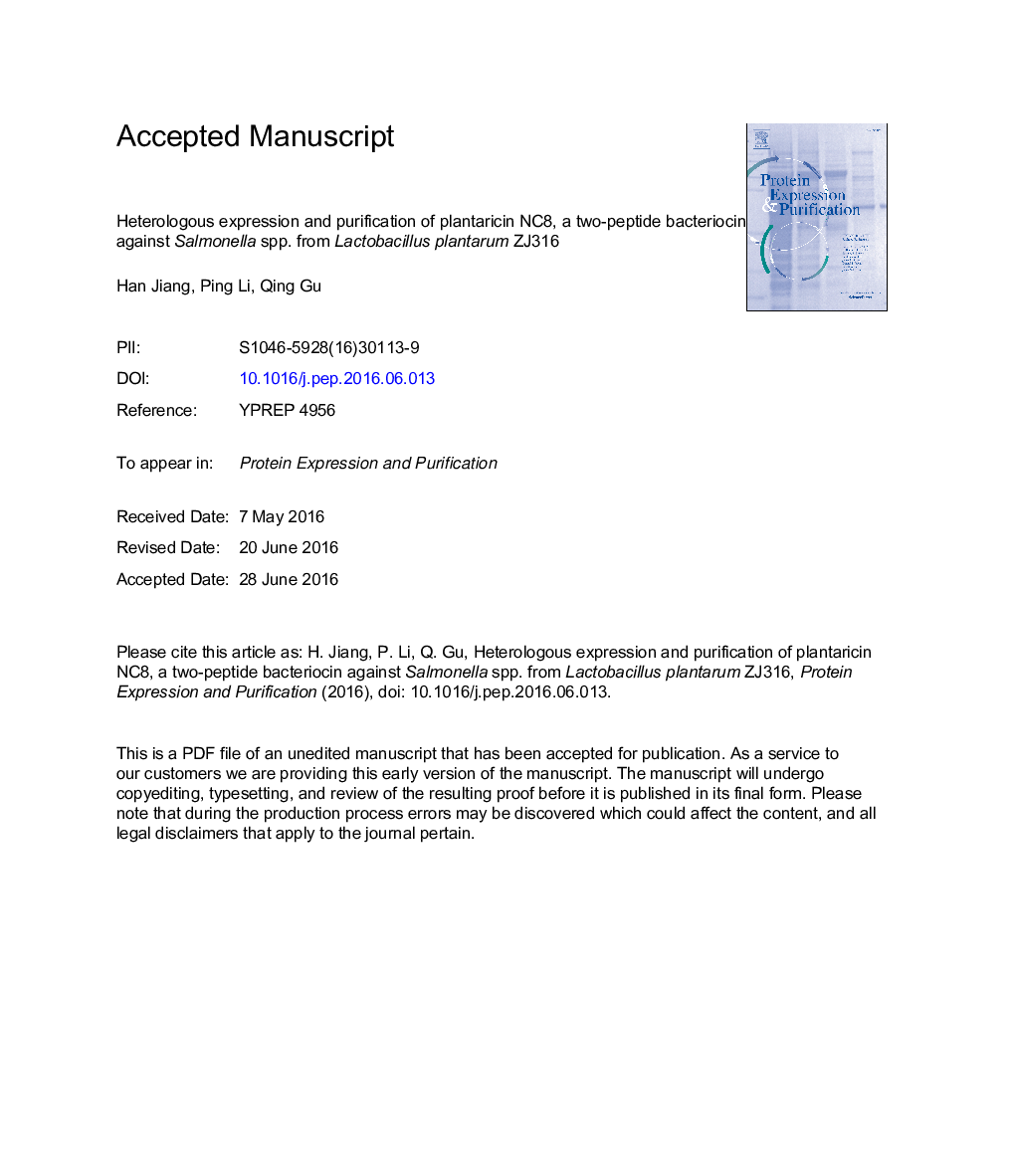| Article ID | Journal | Published Year | Pages | File Type |
|---|---|---|---|---|
| 8359676 | Protein Expression and Purification | 2016 | 21 Pages |
Abstract
Bacteriocin, which is produced by lactic acid bacteria (LAB), has the potential to act as natural preservatives in the food industry. To develop strategies to overproduce such peptides, plantaricin NC8, a class IIb LAB bacteriocin that consists of two peptides, PLNC8α and PLNC8β, was successfully heterologously expressed in Escherichia coli BL21 (DE3). PLNC8α and PLNC8β peptides were expressed as His6-tag fusion proteins and were separated by Ni2+ chelating affinity chromatography. To get the PLNC8α and PLNC8β peptides without extra amino acids in the N-terminus, the fusion proteins were cleaved by enterokinase and further purified using the Ni-NTA Sefinose⢠Resin Kit. The molecular masses of peptides were checked using Tricine-SDS-PAGE and MALDI-TOF-MS. The yield of purified PLNC8α was around 2-2.5 mg/L, and the yield of PLNC8β was around 1.5-2 mg/L. The antimicrobial spectrum of cleaved peptides was detected and the synergistic action of PLNC8α and PLNC8β was preliminarily confirmed. It was found that E. coli was a suitable host for heterologous expression of plantaricin NC8 with a significant yield. Importantly, the bacteriocin appeared to be very active for controlling and inhibiting the food-borne pathogenic Gram-negative bacteria Salmonella spp., and might be useful as a natural preservative candidate.
Keywords
Related Topics
Life Sciences
Biochemistry, Genetics and Molecular Biology
Biochemistry
Authors
Han Jiang, Ping Li, Qing Gu,
